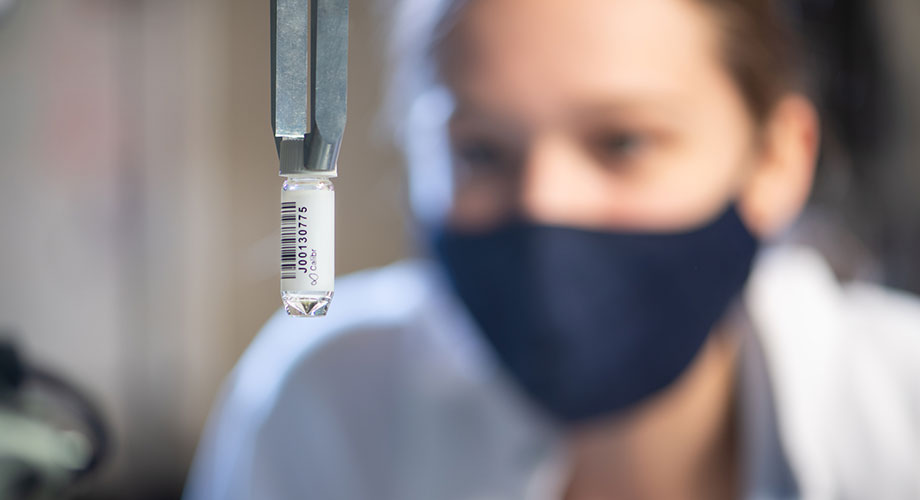
Calibr advances multiple clinical programs while securing significant funding for global health and other disease initiatives
2022 year-end roundup: Clinical success and consistent funding validate Calibr’s pioneering approach to drug discovery.
January 12, 2023
LA JOLLA, CA–Calibr, a division of Scripps Research dedicated to the “bench to bedside” development of transformative medicines, provided a summary today of its 2022 progress and accomplishments. It has three programs in clinical trials and five programs in investigational new drug (IND)-enabling studies. Additionally, the drug discovery engine secured approximately $162 million in new funding to support ongoing and new research. Behind these significant advances is a robust pipeline spanning discovery to clinical-stage drugs that hold the potential to transform global health.
“This has been a critical year for Calibr’s growth and development, as evidenced by our clinical progress to date and the funding we’ve secured to rapidly advance these programs,” says Peter Schultz, PhD, President and Chief Executive Officer of Scripps Research. “At Calibr, we are bridging the gap between scientific discovery and drug development – accelerating the development of new treatment options that could improve the lives of millions of people around the world.”
Advancing the Clinical-Stage Pipeline
Calibr’s portfolio is aimed at a wide range of therapeutic areas designed to serve critical unmet medical needs. This includes programs at or near clinical stage in SARS-CoV-2/COVID-19, inflammatory bowel disease (IBD), HIV, cancer, metabolic disease and obesity, neurodegenerative diseases and various lung diseases including idiopathic pulmonary fibrosis and chronic obstructive pulmonary disease.
One such program that has generated promising early clinical data is Calibr’s switchable chimeric antigen receptor T cell (sCAR-T) therapy (CLBR001 + SWI019) in blood cancer patients. In data released in September 2022, the Calibr team demonstrated six of the first nine subjects in a first-in-human clinical trial had complete responses of their disease to treatment.
Calibr also has a strong focus on regenerative and reparative medicines, advancing a program into human clinical trials that repairs the intestinal barrier in IBD. Another two programs are in late preclinical studies, one of which is a potential first-in-class medicine to regenerate damaged lung tissue in respiratory diseases and the other that repairs heart tissue in patients with congestive heart failure.
“2022 has been a very important year in demonstrating the great potential in our pipeline,” says Travis Young, PhD, vice president of Biologics at Calibr. “The entire Calibr team is working tirelessly toward our mission of improving and expanding patient care globally.”
Partnering for Global Change
The Bill & Melinda Gates Foundation continued its support with a 10-year, $100 million grant renewal for global health initiatives that will help usher in the next generation of medicines to address neglected diseases that drive health inequities, such as malaria, tuberculosis and others. Calibr and Scripps Research investigators have also been awarded a $67 million NIH NIAID grant to lead a new pandemic preparedness center with a focus on coronaviruses, filoviruses (such as Ebola), flaviviruses (including yellow fever, dengue and Zika) and several other known or emerging viruses.
“Calibr has several exciting programs moving into the clinic including a long-acting drug candidate for the treatment and prevention of HIV, a compound with the potential to be a single-dose cure for malaria, and a new drug candidate for the treatment of tuberculosis that could shorten treatment times,” says Case McNamara, PhD, senior director of Infectious Disease at Calibr.
“There are countless diseases that require new and better treatment options, such as malaria and tuberculosis, and any number of viruses that could spur the next pandemic,” says Arnab Chatterjee, PhD, vice president of Medicinal Chemistry at Calibr. “With the continuous support of our funding partners, we are able to help fuel a new generation of medicines that show promise in addressing some of today’s most significant global health threats.”
Funding a Diverse Portfolio
Calibr’s evergreen funding model enables sustained development of next-generation medicines. The Alzheimer’s Drug Discovery Foundation (ADDF) and the Michael J. Fox Foundation (MJFF) are co-funding a Phase 1 clinical trial for a novel biological treatment for neurodegenerative diseases with $5 million in combined investments, and the California Institute for Regenerative Medicine (CIRM) is supporting the development of a novel drug to treat myelodysplastic syndromes (MDS).
On the partnership front, Calibr continued its strong collaboration with AbbVie, securing milestone payments for two drugs that recently entered clinical trials.
“Since its initial founding a decade ago, Calibr has become a globally recognized engine for translating new scientific insights into innovative new drugs,” adds Schultz. “With our dedicated team of drug discovery and development experts, combined with generous funding from our supporters, we are determined to have an even larger impact on improving human health over the next ten years to come.”
For more information, contact press@scripps.edu

